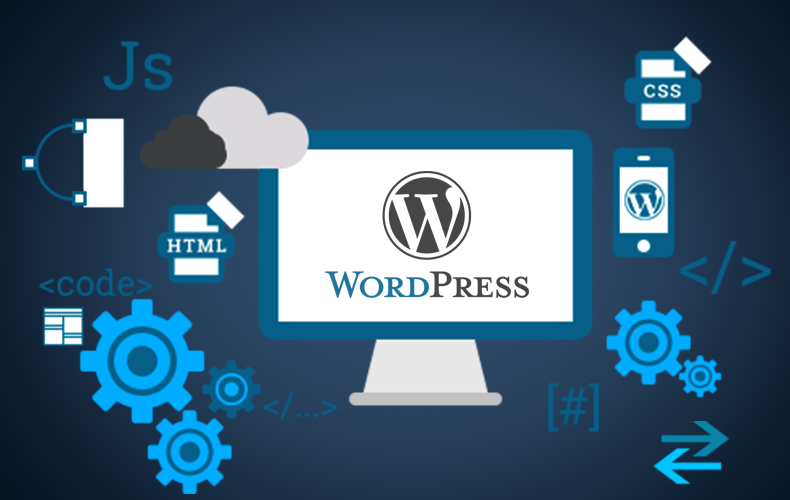Anonymity is an idea romanticized by several people online. The appeal to post articles and responses without revealing your identity seems an appealing idea to millions of people out there. This appeal is the reason why many people often look for ways to create an anonymous blog. This simple idea can allow you to keep your privacy and still share relevant content with people. WordPress allows its users to create an anonymous blog, and share their content with the world without actually revealing their identity. While some people just want to distance themselves from harsh comments and criticism, others may have some personal reasons behind wanting to stay anonymous.
Whatever the reason might be, you can practice anonymous blogging and share your views with people all the while staying hidden. If this is something you have wanted to try for a while, we will help you make this a reality. In today’s guide, we will look at all the steps you can take to set up an anonymous blog. In addition to assisting you to set up your blog, we will also tackle whether or not setting up the anonymous blog is something you should do. We will talk about the pros and cons of an anonymous blog, and help you make an informed decision. So, if you are intrigued by the idea of setting up a blog anonymously, read on to see what are the steps you will have to follow to accomplish your goal and set up a speedy WordPress blog.
How to Start An Anonymous Blog
The best platform to start an anonymous blog is WordPress.org. Thus, instead of using WordPress.com, you should use WordPress.org. This will allow you to self-host your website and have total control over ownership and privacy. Thus, you should understand the difference between a website and a blog and choose WordPress.org to set up your blog.
One thing to note here is that you can find several dedicated plugins to remain anonymous. However, none of these plugins will work as a foolproof method. If you have set up the WordPress blog with your real name and personal information, and the plugin gets deactivated, your information will be revealed. Thus, you can follow all these steps to start your anonymous blog.
Install and Use A VPN

A VPN (Virtual Private Network) is used to protect the user’s identity and ensure the connection is secure. If you don’t have an anonymous website or blog, the website traffic goes through a bunch of servers, and these servers are located around the world. If this is the case, hackers will be able to look at the website’s traffic and review what they are doing. The VPN works as extra security, it is like a middleman between your website and all the visitors.
When the website uses a VPN the traffic goes through it and is encrypted. It is then sent along to the targeted website using a private server. Using a VPN makes it much harder to track the activity of visitors and see what they are doing. You should only choose a quality VPN service to get a high level of encryption and keep your data safe and private.
Set-up an Encrypted Email

The next step in starting an anonymous blog is to set up an encrypted email. This encrypted email will be used to open the hosting accounts and purchase your domain as well. All the communications you will do with the rest of the world will pass through this email address. Thus, you will need to create a pseudonym when signing up for an email, social media, and WordPress as well. You should make sure to use fake information and a pseudonym email when you are setting up your accounts and profiles.
Using your real name and personal information behind the scenes will put your identity at risk, and increase the chances of it getting revealed. After you have set up your email account, make sure to check the inbox of new email addresses, or forward the same emails to your own personal inbox since all the WordPress emails will be sent to your pseudonym email. Also, in social media profiles, you should just refrain from sharing your personal information. Use random locations and wrong information to create an anonymous profile and steer clear of adding anything real about your identity to your posts and descriptions.
Invest in a Private Domain Name
All domain names that are registered must have all the necessary information like name, address, phone number, and email address. No one can register without the necessary information. The best way to work around this is to use fake information. This is a viable option, but it may not always work. Thus, the better alternative is to purchase domain privacy.
With this, you will have to pay some extra money, but it will allow you to stay anonymous and share your content without revealing your identity. You can purchase the domain privacy any time you want, but we would advise you to purchase it in the beginning. However, if you already have a website, and you are thinking about taking it private, you can add and enable the domain privacy anytime you want. You can choose from a variety of options like Cloudflare, Kinsta, etc., and go with the alternative you find the best.
Install A WordPress Blog

Once you have website hosting and a domain it is not time to start your anonymous blog. As we have mentioned above, you should go with WordPress.org instead of WordPress.com, and set up your blog accordingly. You will have several features and configurations to set before you start posting content. If you have a WordPress or Wix blog, you can set up a new user, and start posting anonymously.
Although, you should remember to choose a pseudonym to write anonymously, as you cannot use your own name as an author. You can add a new user to your existing WordPress website. Simply open the WordPress dashboard and navigate to “users” and then “your profile”, once there, add a nickname for the profile. Once this is done, click on the menu, and select a pseudonym (anything except your real name). You can also refer to our guide 20 Ways To Speed Up Your Website | Practical Tips to increase the speed and performance of your WordPress website and blog.
Monetize

Once you have set up your anonymous blog, it is now time to monetize it. Most people think that just because they are blogging anonymously, they cannot monetize their blog. However, that is not true. There are several ways to earn money from an anonymous blog. Blogging anonymously is similar to any other type of blogging. Thus, you can use affiliate services like Google Adsense or other Google Adsense alternatives to earn money. Even though it is mostly the same, the earning potential is a bit limited in anonymous blogging.
You have a chance to earn money by selling products, affiliates, and self-publishing about your services and products. But you cannot promote the stuff on a personal level. Since you are not sharing your identity with the world, you cannot promote the products on personal social media platforms. You will also not be able to promote the stuff to close friends and families, and earning from anonymous blogging can be a little time-consuming.
Why You Should Not Set-up An Anonymous Blog
Setting up an anonymous blog has a certain appeal. But, setting sharing content anonymously can have some major drawbacks as well. Thus, you should consider each and every aspect of anonymous blogging, before diving into it. Let’s look at some common cons of blogging anonymously, so you can make an informed choice.
You Won’t Be Able To Interact With the Audience
Since you will not be sharing your real identity with the visitors. You will not be able to interact with them as well. The audience may leave comments and thoughts about your content, but you will not be able to reach out to them due to this limitation. This will affect the engagement levels of the audience and can be a roadblock in your journey towards success. Thus, if you don’t want anonymity to affect your future growth, you shouldn’t start an anonymous blog.
Things Will Get Out of Hand If Your Identity is Revealed

The main purpose of an anonymous blog is to conceal your identity from the world. However, even after taking all the necessary steps to stay anonymous, your identity is not 100% secure. There is always a chance that you will be outed. And it will not only affect your blog or website, but it will also affect your life. If you have built an anonymous blog to talk about a sensitive topic or do something illegal. It can have dire consequences. Thus, if you want to stay away from the embarrassment of being outed and the consequences of sharing sensitive content anonymously. Then, you should avoid starting an anonymous blog.
You Don’t Have Much To Share About A Topic
If you only have limited information to share about a topic, or you are just trying the anonymous blog fun, then don’t. As it is a lot of work to set up and maintain an anonymous blog. And if you are only going to post a couple of articles, then there is no point in going through all the hassle and putting yourself under a lot of pressure. If you want to share information about a topic anonymously, you can use a guest post, or post it under a pen name. This way, you will be able to get all the information to your reader without actually posting it via your own profile. Also, you will be able to tap into the potential of your existing audience, and also save yourself from the trouble of setting up an anonymous blog.
Less Monetization
This is one of the major setbacks of anonymous blogs. If you are posting your content anonymously, you will not be able to promote the content, or products using your personal profile. Thus, you only have limited options if you want to monetize your blog. You can go for affiliate marketing or programs to earn money from your blog, but you cannot tap into the potential of your own social media profiles. Also, if you might not be able to use some affiliate programs as they ask for personal information when setting up your account. Thus, you will have a limited advertising network to tie up with and the anonymity will affect your blog’s money-earning capabilities.
You Will Still Have To Face Criticism (Anonymously)
Being anonymous does not make you immune to criticism. If you are putting your content on the internet, people will react, and some of them will criticize. Just because they don’t know your identity, doesn’t mean they cannot leave comments on the blogs. You will still have to face a similar amount of criticism even if you have an anonymous blog. In addition to comments, people will try to contact you using the fake email address or name you provided. And you may end up getting emails into your pseudonym email account. Thus, if the sole reason you are starting an anonymous blog is to avoid criticism, then you should think twice.
Is It Worth It To Set-up An Anonymous Blog?
Everyone has a specific reason for wanting to stay anonymous, and this is the reason encouraging you to start an anonymous blog. Like every other decision, starting an anonymous blog has its own set of advantages and disadvantages. Thus, you should consider all the significant ones before you make a choice. The process of setting up an anonymous blog is quite simple, but you should remember it is going to cost you money. Going anonymous may be easy, but it is not free. For foolproof anonymity, you will have to spend some funds. Those who are just looking to share information anonymously can use the option of pen names and guest posts. This is why you should consider your requirements before you embark on the journey of anonymous blogging. If you have decided to start a blog anonymously, we hope this guide helps you set up one.
Also Read- How To Update PHP in WordPress